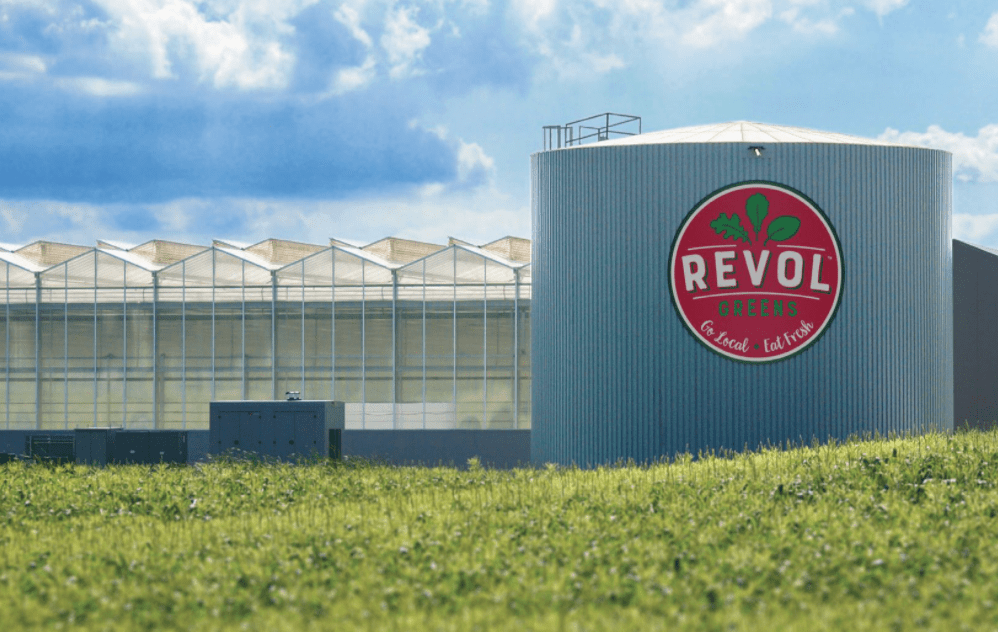The controlled environment agriculture (CEA) space appears to be in a race, with startups jostling to see which can build the biggest facility or supply the most produce. Owatonna, Minnesota-based Revol Greens is throwing its hat in the ring, having recently raised $68 million in Series A funding. Greenhouse-hungry VC Equilibrium Capital led the round, which brings the startup’s investment total to $215 million.
“Greenhouses are the tech disruptor in a 10,000-year-old agriculture sector,” Equilibrium CEO David Chen said in a press release announcing the funding. “[The firm’s] investment strategy is to find the industry leaders that will create the future of agriculture. Revol Greens [is] poised to be one of those tech-driven disruptive agriculture market leaders.”
Launched in 2016, Revol Greens is the brainchild of an interdisciplinary team composed of the founder of local farm Bushel Boy, a greenhouse grower from Amsterdam, and a horticulture consultant. It employs closed-loop hydroponics to grow lettuces in a system that uses 90% less water than traditional open-field agriculture, according to the startup. Its glass greenhouses also mitigate the need for pesticides, herbicides, or other chemicals.
Revol and Equilibrium have taken a slightly different approach to finance their CEA expansion. Equilibrium is footing the bill for the construction of the facilities, which Revol will then lease from the VC.
With that funding, the startup is planning to build a new, 80-acre greenhouse complex in Texas – which it claims will be the largest such facility globally. It also recently inked the paperwork for a California installation that will be operational in the first quarter of 2021. With these two locations plus its home base in Minnesota, Revol is positioning itself to access key markets.
“With these three cities we will have taken a pretty big chunk of the country west of the Mississippi,” Mark Schulze, the newly appointed CEO of Revol, told AFN. He joined the startup in March 2020 after three decades working for Cargill in domestic and global leadership roles. Delivering produce within 24 hours of harvest is a key goal for the startup.
“There are other expansions that are going on like AppHarvest, but it has never grown lettuce,” he said, referring to the rival CEA startup. “There is a lot of money there but we have been growing lettuce since 2018. We have done thousands of trials on seeds to know what seed provides the best characteristics and quality for our consumer. We’ve done massive innovations in the process that are different from off-the-shelf greenhouses that you can buy.”
Revol is also focusing on scale. With its 10 to 20-acre facilities it’s hoping to drive down costs so it can provide a price-competitive product, Schulze added.
“We don’t have to be priced at two times the imported price of West Coast lettuce.”
Last week, Kentucky-based AppHarvest announced a merger with NASDAQ-listed Novus Capital, enabling it to go public. The deal is slated to bring in $475 million in gross proceeds.
“I think [that deal] certainly raised the profile of the space. I think that’s terrific,” Schulze said.
“We need to have more [CEA] projects around the country and around the world. It is a very efficient way to grow food and a better way to grow food sustainably for the future. So, I am happy that it has moved into somewhat more mainstream investing.”





